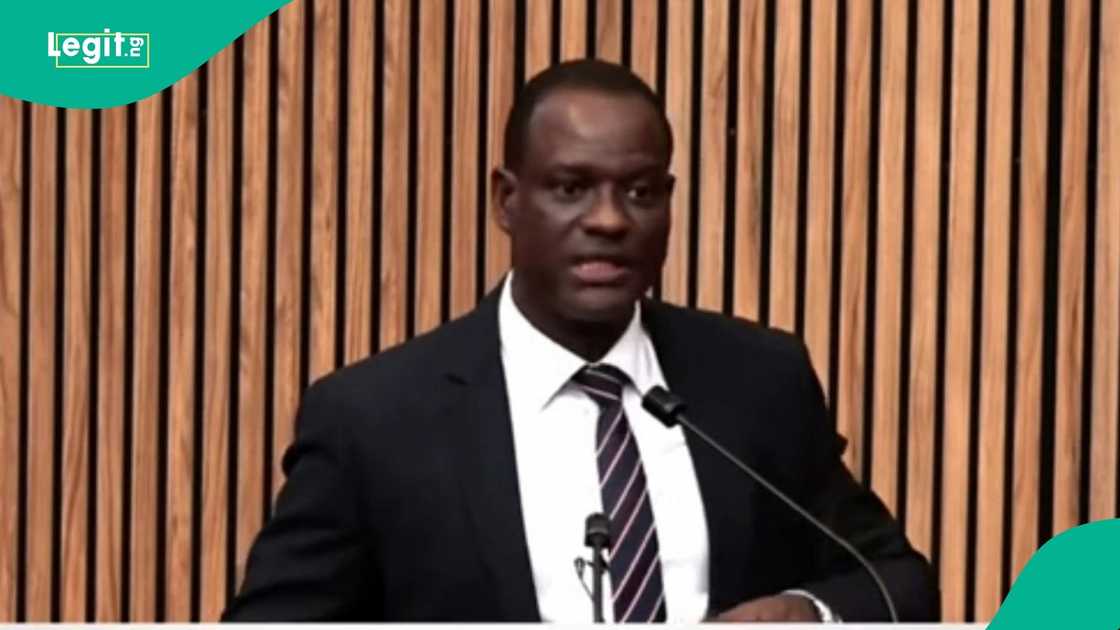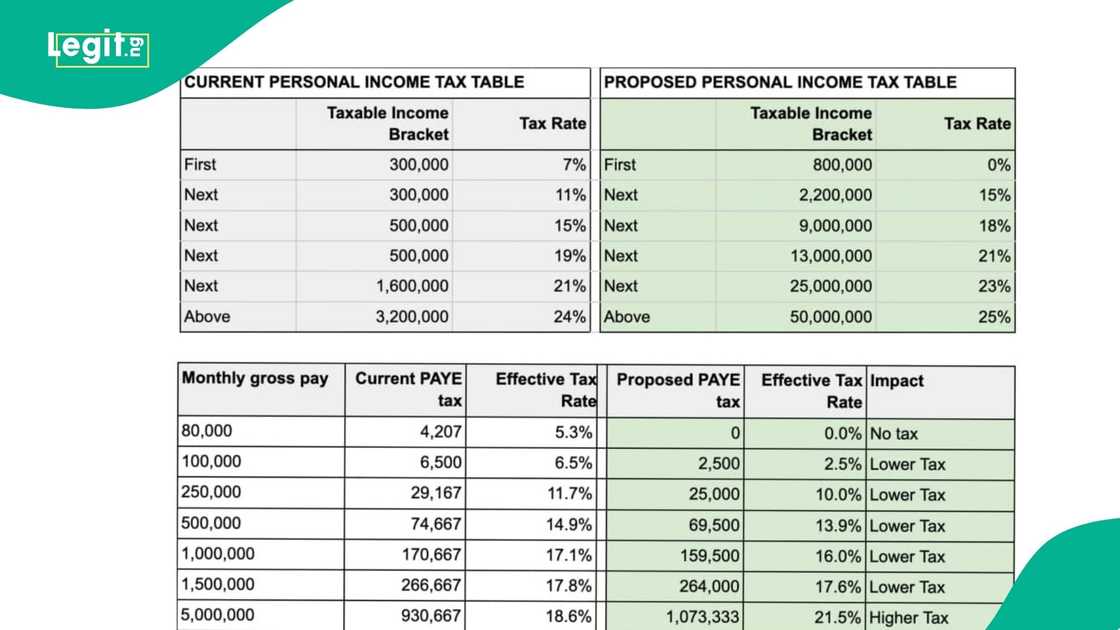Tax Reform: Over 90% of Workers to Pay Lower Taxes in Proposed Bill
- The new tax bill will translate to lower taxes for more than 90% of public and private workers in Nigeria, the tax committee has explained
- Taiwo Oyedele did a comparative analysis to show that only those earning above N5 million per month will pay higher taxes
- The tax reform bill continues to elicit mixed reactions, even as the tax committee continues to explain the sticky areas in several engagements
Legit.ng journalist Ruth Okwumbu-Imafidon has over a decade of experience and a deep understanding of Nigeria's corporate sector and emerging trends in the fintech space.
When the proposed tax reform bill secures legislative approval, over 90% of Nigeria's private and public sector workers will pay lower taxes.
This is against widely peddled opinions suggesting that workers will pay more tax under the new bill.
Taiwo Oyedele, the chairman of the Presidential Committee on Fiscal Policy and Tax Reforms, made this assertion on his X (formerly Twitter) handle on Monday night.

Source: Twitter
In a post titled "How the Personal Income Tax Changes will affect you", he explained that the bill sets new thresholds that give full exemption to those earning even slightly more than the new minimum wage.
Also, individuals earning N1.7 million or less per month will pay less taxes under the new bill, compared to the current tax laws.
“These thresholds will result in over 90% of workers in the public and private sectors paying lower taxes while high income earners will pay slightly more in a progressive manner up to 25% for the ultra-high networth individuals.
Oyedele also explained in a recent interaction that the VAT reform in the bills would lower manufacturing costs for businesses in Nigeria.
Old versus new tax rates
Oyedele explained in the post that the current tax rates were introduced in 2011 and have not been reviewed since then.
He added that due to this, inflation has pushed many low-income earners up the tax bracket to pay the same rates as the high-income earners.
He explained:
"This means that an individual earning just N400k a month is paying the same top marginal income tax rate as a wealthy individual earning say N20m per month. Therefore, the tax table has become regressive rather than progressive as it was originally designed."
According to Oyedele, the issue has been addressed in the new bill so that the tax is progressive and less burdensome on low-income earners, who will now have a lower effective tax rate.
Some experts have also explained what the tax reform bill will change for Nigerians.
Those earning N5m/month will pay higher

Source: Twitter
The comparison shows that only workers earning above N5 million monthly will pay higher taxes in the new tax bill, which translates to less than 10% of Nigeria's workforce.
Under the current tax rates, a worker earning N100,000 currently pays N6,500 income tax, but under the proposed tax bill, the same worker will pay N2,500.
Similarly, a worker earning N1 million currently pays N170,667 as income tax but will pay N159,500 under the proposed tax bill.
No going back on tax reforms
Meanwhile, Legit.ng recently reported that despite the reactions that have trailed the tax reform bill, President Bola Tinubu says there is no going back.
The president reiterated his determination to reform the current tax system and laws in Nigeria, to bring Nigeria up to global standards.
Among other things, he noted that the tax reforms are pro-poor and inclusive. They are more focused on widening the tax net than increasing the burden of low-income earners in Nigeria.
Tinubu added that the Tax reform bill, when passed into law, will critically support Nigeria's development goals.
Proofreading by James, Ojo Adakole, journalist and copy editor at Legit.ng.
PAY ATTENTION: Сheck out news that is picked exactly for YOU ➡️ find the “Recommended for you” block on the home page and enjoy!
Source: Legit.ng






